It’s fun to observe and reflect on the regular visits of sons, daughters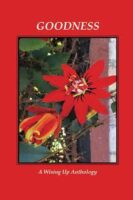 and grandchildren to a senior retirement community like mine. A year ago I was struck by the enthusiasm of a daughter who didn’t look in the least like the father she came to see and help. I was prompted to concoct a short story that was in due course turned down by more than a dozen literary magazines.
and grandchildren to a senior retirement community like mine. A year ago I was struck by the enthusiasm of a daughter who didn’t look in the least like the father she came to see and help. I was prompted to concoct a short story that was in due course turned down by more than a dozen literary magazines.
Then along came a call from a small press compiling an anthology of stories about “goodness in our lives.” Sure enough, in just over two weeks they snapped up my “The Redhead.” You can read it ===> here.
Not every door is locked
A literary magazine based in Texas, called The First Line, routinely invites stories 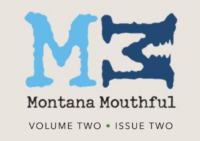 using its opening words, and I sometimes use such prompts to stir up the writing juices. Last April they invited stories whose opening words were “The door was locked.”
using its opening words, and I sometimes use such prompts to stir up the writing juices. Last April they invited stories whose opening words were “The door was locked.”
I concocted a story appropriate to the pandemic era. They declined it, but another magazine, Montana Mouthful, invited stories on the theme of “quarantine,” and I sent it to them. Their door wasn’t locked; you can read it my story ==>>here.
First Line’s prompt for its next issue, by the way, is: “Loud music filled the room, making it hard to hear anything else.” Think about that one.
Old Tippecanoe lives on
So It Goes, the annual publication of the  Kurt Vonnegut Museum and Library, invited stories on the theme of “civic engagement”— and welcomed pieces earlier published elsewhere.
Kurt Vonnegut Museum and Library, invited stories on the theme of “civic engagement”— and welcomed pieces earlier published elsewhere.
Calliope, then the magazine of the Mensa Society, published in 2016 my riff on the political campaign of Tippecanoe and Tyler too, built around the role of an imagined consultant. I offered it; the Vonnegut editor liked it — perhaps for a relevance to this year’s events. It’s out today, available in print here – or read it ==>>here
Aging among the world’s oldest trees
Canary calls itself “a literary journal that explores one’s engagement with the natural world, based on the premise that the literary arts can provide an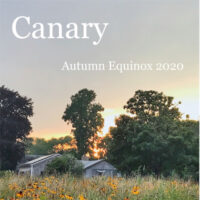 understanding that humans are part of an integrated system.” I’d drafted a short story, drawn from my experience herding cattle just east of California’s Sierrra Nevada, that imagined an aging cowboy among the ancient bristlecone pines of that range. An inveterate punster, I called it Bristling Senescence. It’s out now in Canary‘s handsome online 50th edition
understanding that humans are part of an integrated system.” I’d drafted a short story, drawn from my experience herding cattle just east of California’s Sierrra Nevada, that imagined an aging cowboy among the ancient bristlecone pines of that range. An inveterate punster, I called it Bristling Senescence. It’s out now in Canary‘s handsome online 50th edition
You can read it ==>>there
Arias in isolation
At the height of the pandemic isolation, I spent an afternoon streaming a favorite from The Met, Der Rosenkavalier — and began dreaming up what became less of a short story than a mood piece. I wasn’t surprised when a half-dozen literary magazines turned it down.
became less of a short story than a mood piece. I wasn’t surprised when a half-dozen literary magazines turned it down.
Then I ran across Flora Fiction, which calls itself “a collective of creative muses and inspiration. . . . reconnecting with your inner artistic child.” Sure enough, they liked it, and its out in their fall issue. You could read my story here at my blog, but the online version of the magazine is so colorfully handsome that it’s worth flipping through nine double pages (enjoy it full-screen!) to read my Harmonic Distance. Click ==>>here
A minimum of last respects
I suppose most of us have been to at least one funeral service that was more perfunctory than pious, a farewell for someone few would miss.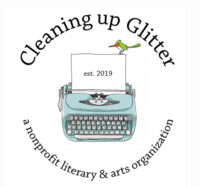 My Seeing Charlie Off was inspired, a half-dozen years ago, by such a service. I wasn’t sure anyone would want to publish it — until I ran across Cleaning Up Glitter. “We are here to explore the Human Condition,” says founder Amy Tortorella Walsh, “. . . anything that explores your life views, existence, mortality, spirituality, conflict. . . .”
My Seeing Charlie Off was inspired, a half-dozen years ago, by such a service. I wasn’t sure anyone would want to publish it — until I ran across Cleaning Up Glitter. “We are here to explore the Human Condition,” says founder Amy Tortorella Walsh, “. . . anything that explores your life views, existence, mortality, spirituality, conflict. . . .”
So I sent her Charlie; she liked it, and published it last spring — online, in rather small type. You can read it there ==>>.
But now that I’ve gotten the copyright back (after an unusually long six months), you may find it easier t0 read here==>>
Remembering a friendly spy
“An American university fellow in 1970s Cambodia begins to welcome the special treatment he receives as government agents scrutinize his every move.” That’s how Lowestoft Chronicle![]() introduces its Volume 43, which includes my memory piece, “Being Watched”. I was visiting the legendary ruins of Angkor War in Cambodia when the man assigned to keep me under surveillance apologized for being late, and asked me to tell him how I’d spent my day.
introduces its Volume 43, which includes my memory piece, “Being Watched”. I was visiting the legendary ruins of Angkor War in Cambodia when the man assigned to keep me under surveillance apologized for being late, and asked me to tell him how I’d spent my day.
Lowestoft published another bit of Cambodian memories a few years ago, too. You can read the latest ==>>here at my blog, or at their website, ==>>here
Trying my hand at a dark story
I’m not entirely sure where the idea for “Bonding” came from; it’s a dark story, not my usual. I began it during the early stages of Brad’s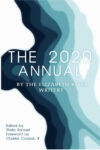 illness, set it aside, and went back to it after her death, which I suppose explains at least part of the origin. Anyway, the Elizabeth River Press in Virginia liked it, and it’s in their 2020 annual anthology, available as a paperback at booksellers including Amazon. But unlike most literary magazines and collections these days, there is no online edition, so you’ll have to read it ==>>here
illness, set it aside, and went back to it after her death, which I suppose explains at least part of the origin. Anyway, the Elizabeth River Press in Virginia liked it, and it’s in their 2020 annual anthology, available as a paperback at booksellers including Amazon. But unlike most literary magazines and collections these days, there is no online edition, so you’ll have to read it ==>>here
A dog and mariticide
Mariticide is the murder of a husband, and is the context of  my short story “Rescue.” The title refers to the wife’s efforts to save her dog that was unavoidably at the scene. A friend who read an early draft thought my ending cruel. But undeterred, I polished it up and sent it off to the Bethlehem (PA) Writers Group. They liked it, and you can read it at their website ==>here (or of course right here on my blog).
my short story “Rescue.” The title refers to the wife’s efforts to save her dog that was unavoidably at the scene. A friend who read an early draft thought my ending cruel. But undeterred, I polished it up and sent it off to the Bethlehem (PA) Writers Group. They liked it, and you can read it at their website ==>here (or of course right here on my blog).
Learning Union Rules
I spent one summer of my college years making radiator hose at the B.F. Goodrich factory in Akron, Ohio. I came close to spending that 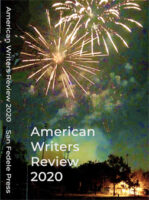 summer unemployed, but I was blessed with a mother who stiffened my spine when I was nearly crushed by my own stupidity.
summer unemployed, but I was blessed with a mother who stiffened my spine when I was nearly crushed by my own stupidity.
It’s a story of learning to speak up for myself, and — not just incidentally — learning union rules. For the second year in a row, the American Writers Review annual book includes my writing. I call this one Work Rules. You can read it ===>here






